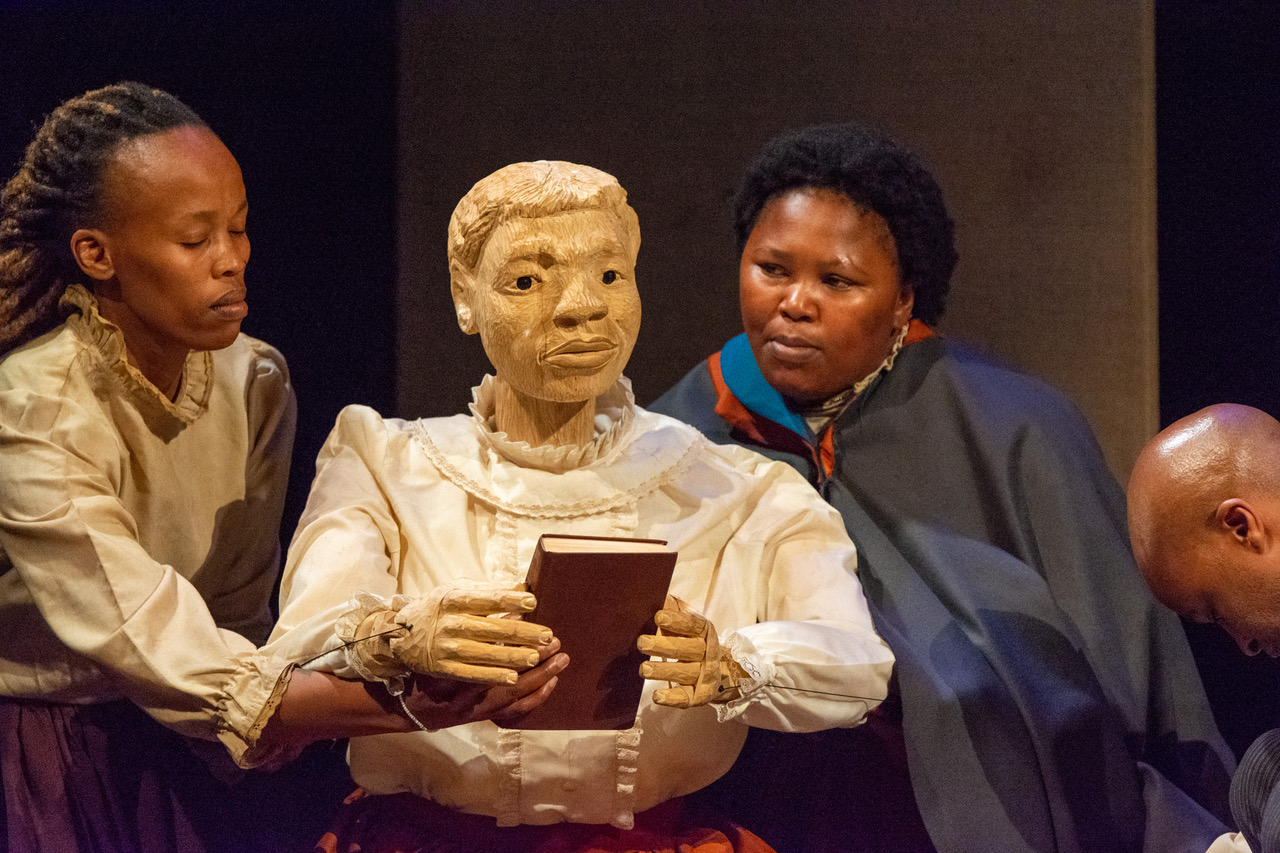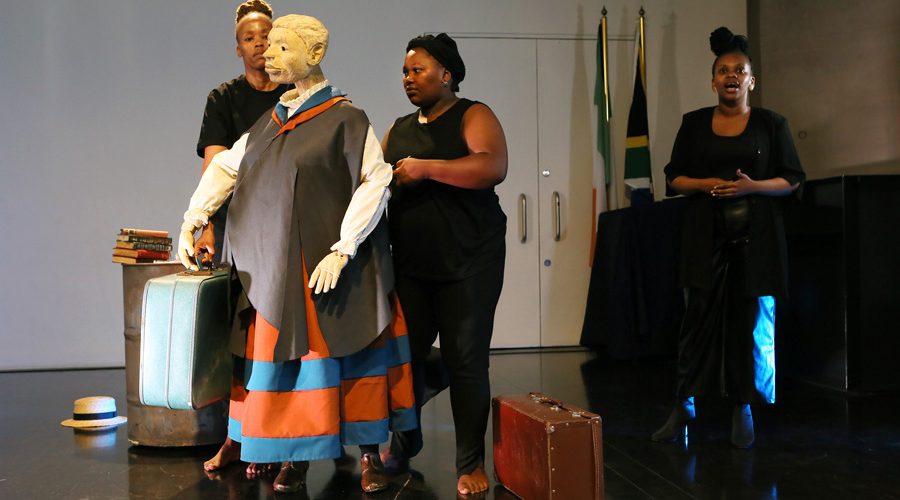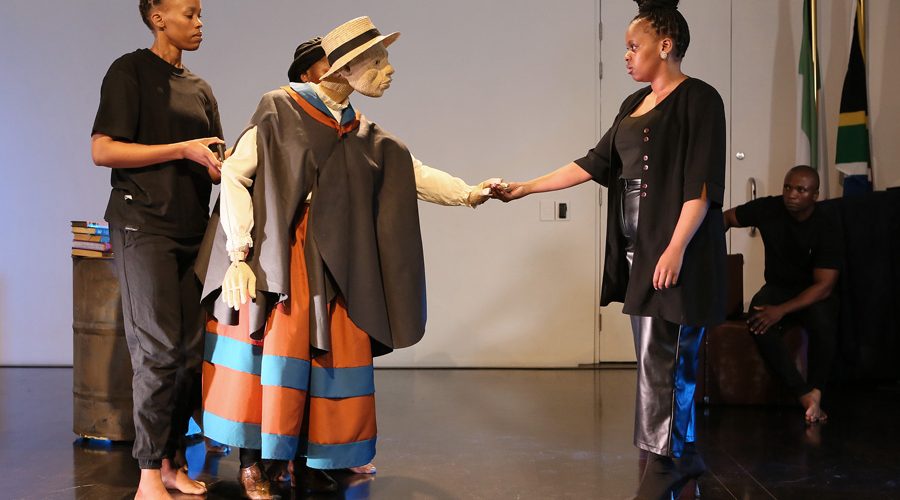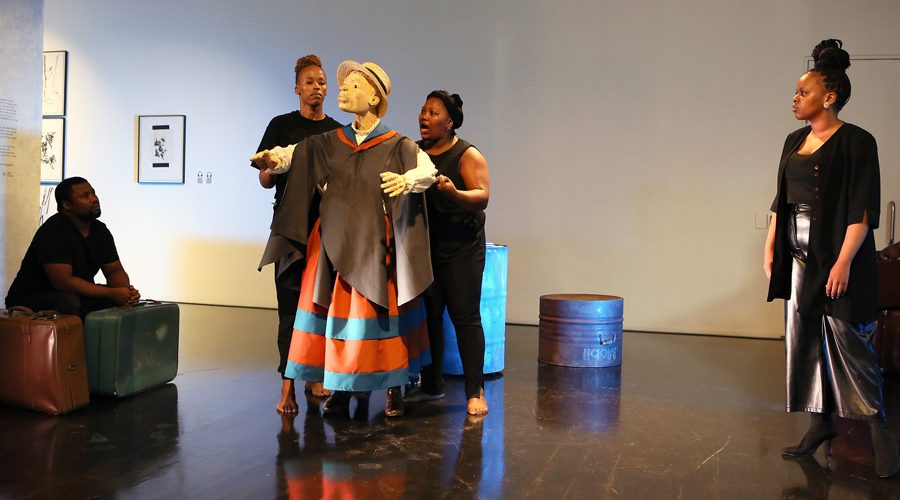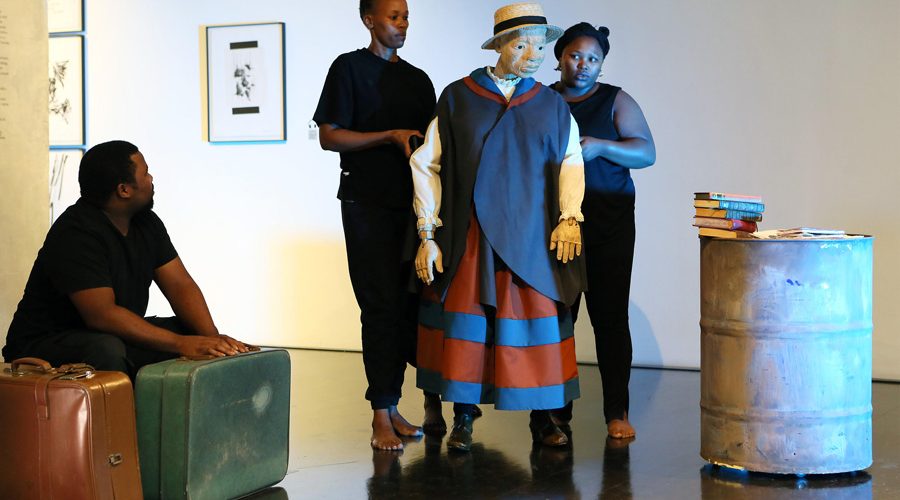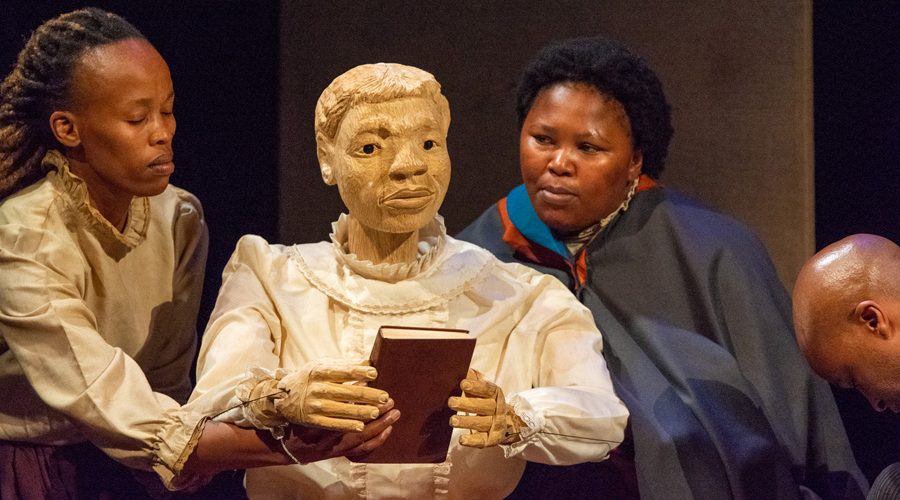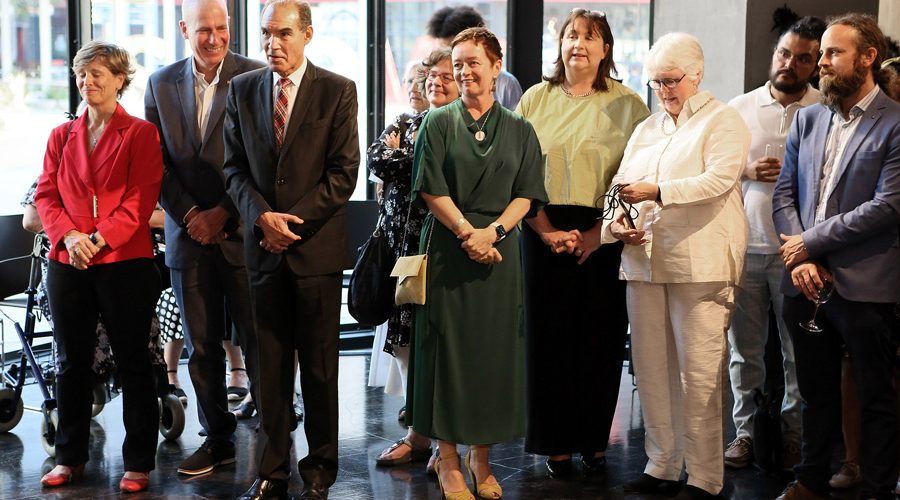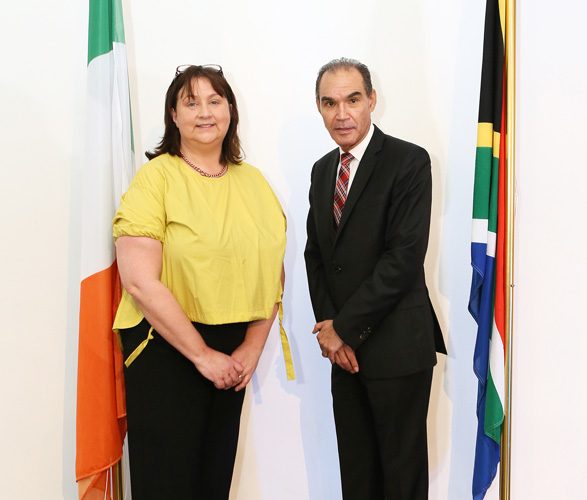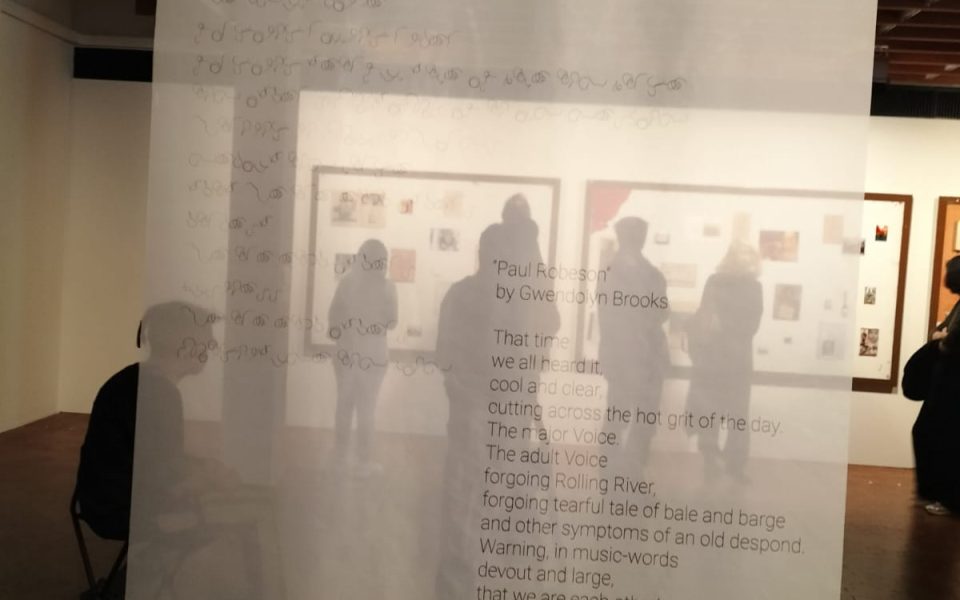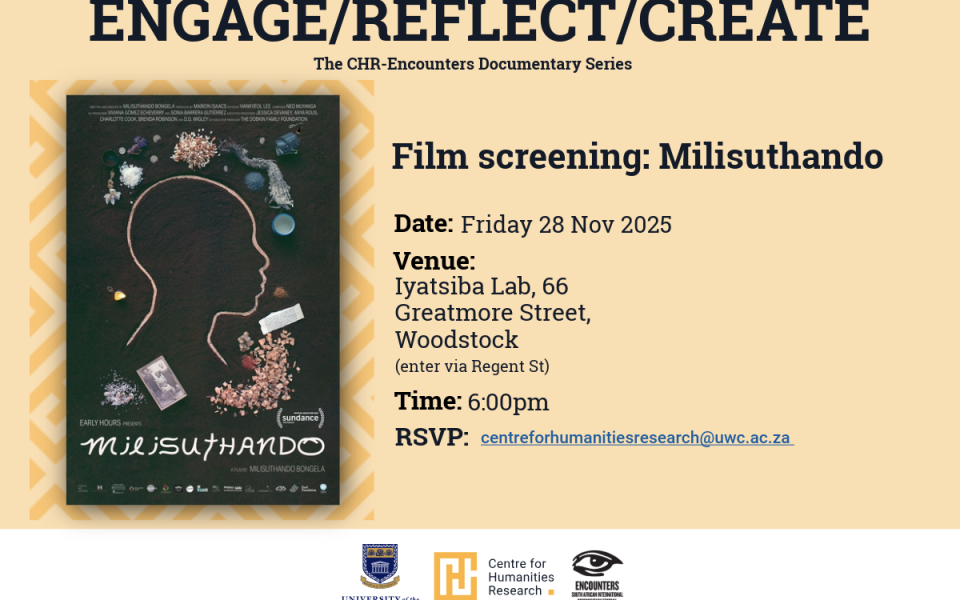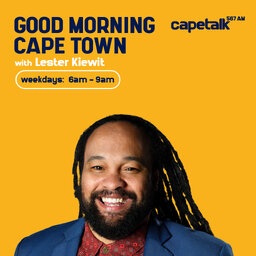The Charlotte Maxeke-Mary Robinson Irish South Africa Research Chair launch, 14 March 2023
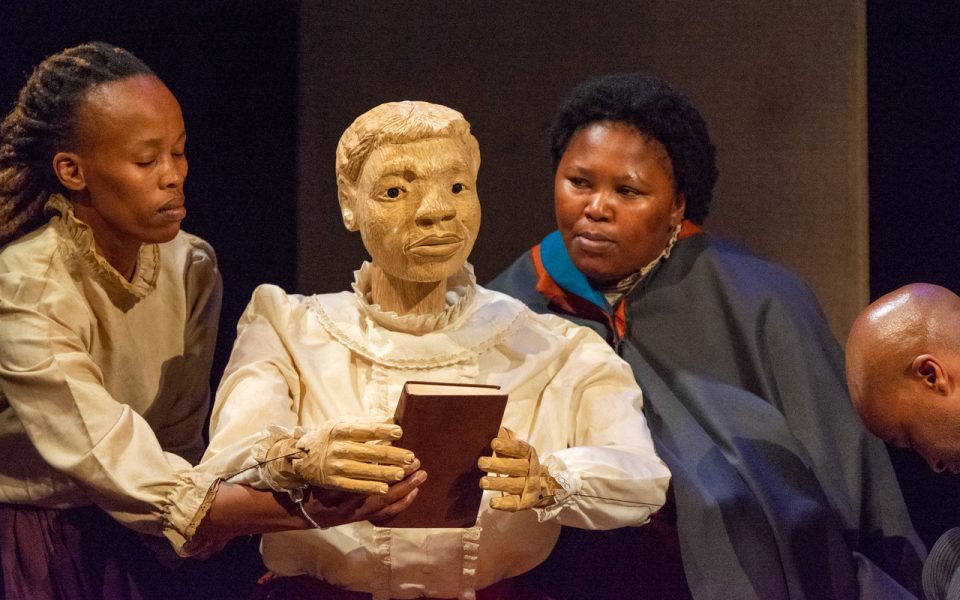
MAXEKE: "This work is not for ourselves": Grant Williams
H.E. Fionnuala Gilsenan, Ambassador of Ireland to South Africa, and the Rector and Vice-Chancellor of the University of the Western Cape (UWC), Professor Tyrone Pretorius, are proud to announce the launch of UWC’s Charlotte Maxeke - Mary Robinson Research Chair at the Centre for Humanities Research.
This Chair emerges out of a longstanding collaboration between the Centre for Humanities Research (CHR) at UWC and the Trinity Long Room Hub Arts & Humanities Research Institute (TLRH) at Trinity College Dublin that has focused on colonialism, partition, postcoloniality and race. Relationships and networks forged through these institutions’ fellowship programmes have laid the groundwork for today’s historic announcement. The Charlotte Maxeke-Mary Robinson Research Chair inaugurates, through the Humanities, a broader and reciprocal collaboration between Ireland and South Africa which engages our complex inheritance of colonialism, empire, partition and apartheid, and how to overcome this legacy. The CHR and TLRH’s work in aesthetics and politics has drawn attention across our social and institutional settings to the ways that cultural production can bring political thought, the arts, and research across disciplines into the public sphere. This shared understanding stems from a recognition of a history that marks both countries in relation to legacies of colonialism and partition, as well as to the possibilities inherent in the work of education and the arts to find unexplored modes of reconciliation to transcend these legacies.
Drawing inspiration from the work of Seamus Heaney whose “The Cure at Troy”, dedicated to Nelson Mandela, impresses upon us to think of “that further shore” where “hope and history rhyme”, the Charlotte Maxeke-Mary Robinson Research Chair encourages a process of thinking futurity beyond the horizons of nationalism to affirm possibilities for overcoming our troubled pasts. The Research Chair’s themes will explore arts and archives of post-partition societies; technology and the human, society and aesthetic education; poetics and post-partition futures and new models of reconciliation and peace in the wake of colonialism, partition and apartheid. These ambitions are brought together in the educational visions of Charlotte Maxeke and Mary Robinson, on either side of the Twentieth Century in South Africa and Ireland. If Charlotte Maxeke represents the struggle for the extension of educational opportunities for Black South Africans as the first Black woman university graduate and founder of the first woman’s organisation in South Africa at the turn of the century, then Mary Robinson brings this impulse to fruition through her worldly commitment as a political leader, intellectual and educationalist at the close of the century. Both Charlotte Maxeke and Mary Robinson are exemplary transnational thinkers who offer concepts of education and futurity combined with the worldly commitments necessary to attend to these concepts. With the inauguration of the Research Chair this intellectual sensibility will guide future faculty and postgraduate research, as well as engagements with artistic production, to develop a comparative perspective on relations between Ireland and South Africa.
Through funding support from the Irish Department of Foreign Affairs, the initial phase of the work of the Research Chair will bring scholars and artists in Ireland to Southern Africa, hosted by the CHR. The TLRH has already begun the work of raising additional funds to bring scholars and artists from South Africa to Ireland as the reciprocal commitment of the Research Chair formalises and expands the purposeful relationship between the TLRH and the CHR. The historic inauguration of the Charlotte Maxeke-Mary Robinson Research Chair offers both societies the extraordinary opportunity to think beyond histories of partition in order to build new imaginations of post-partition societies.
UWC Rector and Vice-Chancellor, Professor Tyrone Pretorius noted that, “the life, struggle and achievements of Charlotte Maxeke deeply resonate with us at UWC and I had no hesitation in agreeing that we should honour her in this way. Similarly, the achievement of Mary Robinson holds valuable lessons for us. […] In the spirit of these two remarkable women, I have huge expectations of this chair and of this partnership between these two institutions. I look forward to seeing the research that will emanate from this and the contribution it will make, not only to our two respective countries but to the world at large”.
Irish Minister of State in the Department of Health and the Department of Children, Disability, Equality, Integration and Youth, Anne Rabbitte, said the chair will also facilitate academic exchange between Ireland and South Africa, allowing for a sharing of knowledge and expertise in these areas with a focus on the arts.
CEO of the Charlotte Mannya Maxeke Institute, Thulasizwe Makhanya, speaking on behalf of the Mannya, Maxeke and Makhanya families as well as the institute, remarked on the Chair’s significance for continuing Charlotte Maxeke’s abiding commitment to education.

